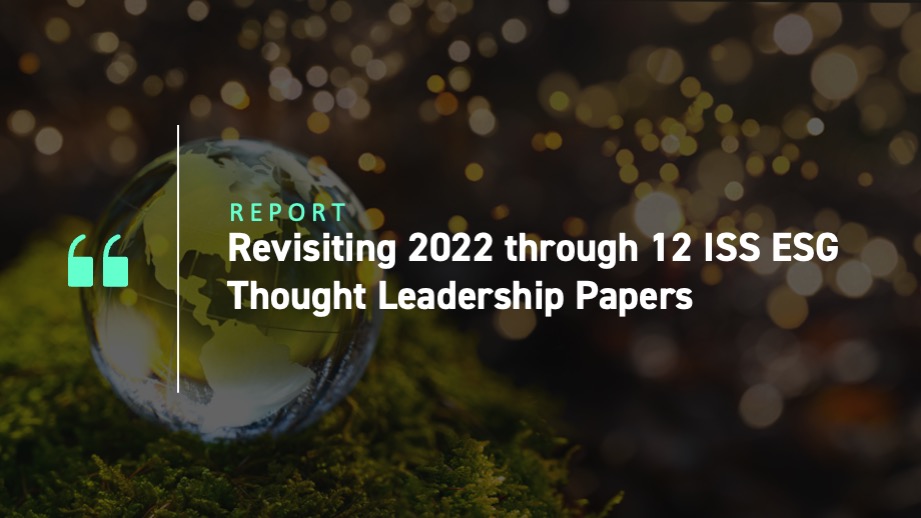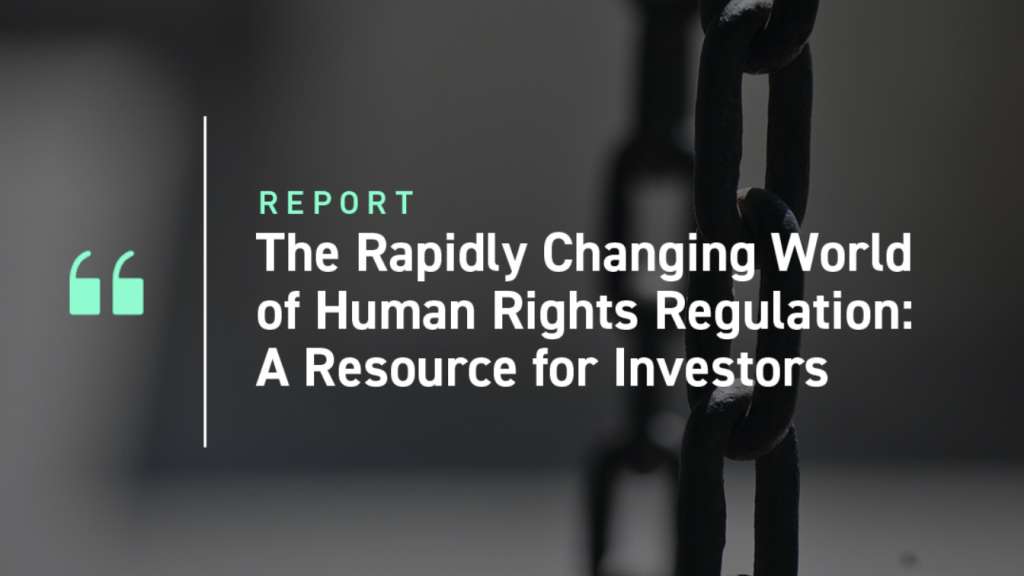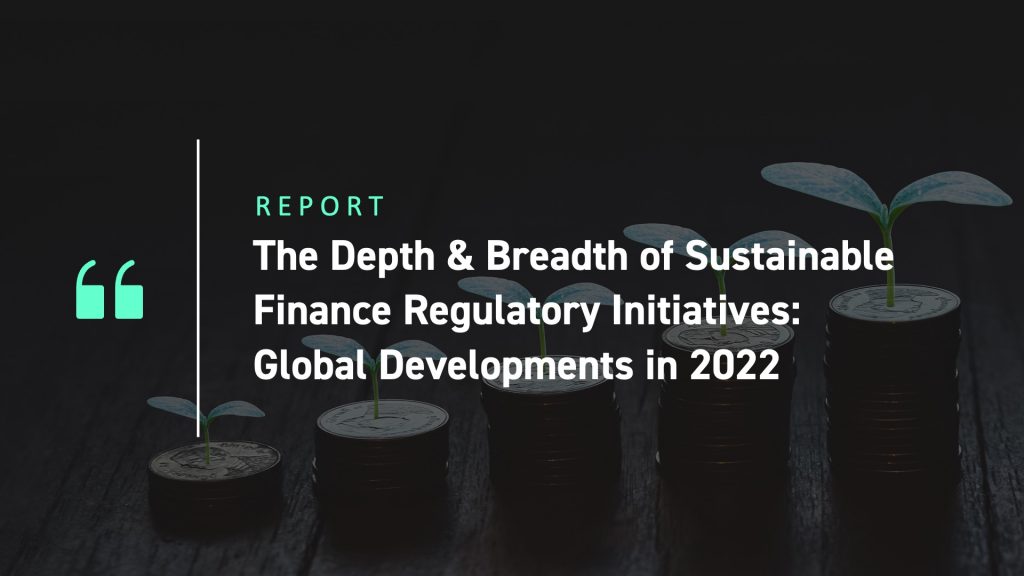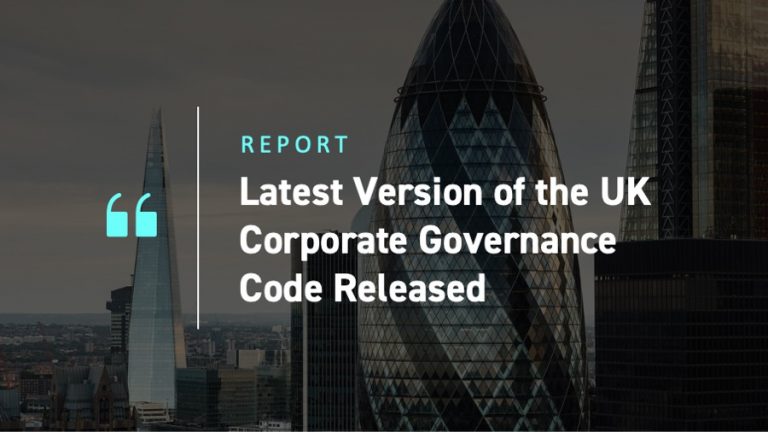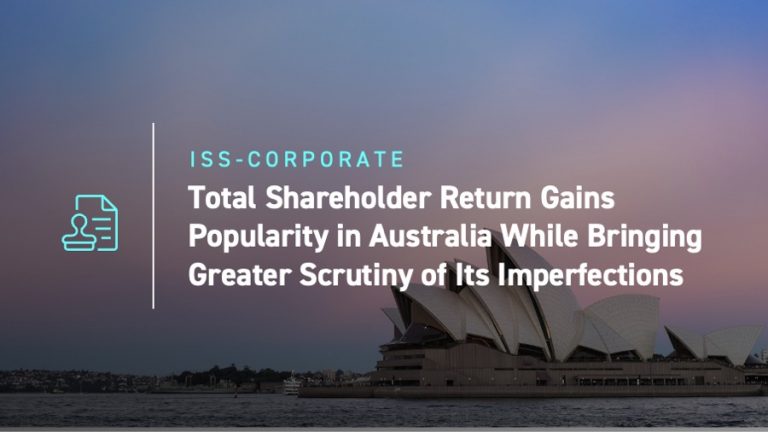In 2022, ISS ESG Thought Leadership publications addressed an array of ESG-related topics with significant implications for investors. These highlighted publications illustrate the breadth of Thought Leadership’s coverage of current topics relevant to ESG investing, especially those that received in-depth attention in longer reports.
Thought Leadership addressed broad, global trends such as the evolution of ESG-related regulation, the impact of freshwater scarcity, and the environmental and economic benefits of the circular economy. Topics covered also included more specific issues that were particularly timely or of interest, such as the effects of sanctions on Russia and diversity within North American companies’ boards.
Below are highlights from just a selection of these works.
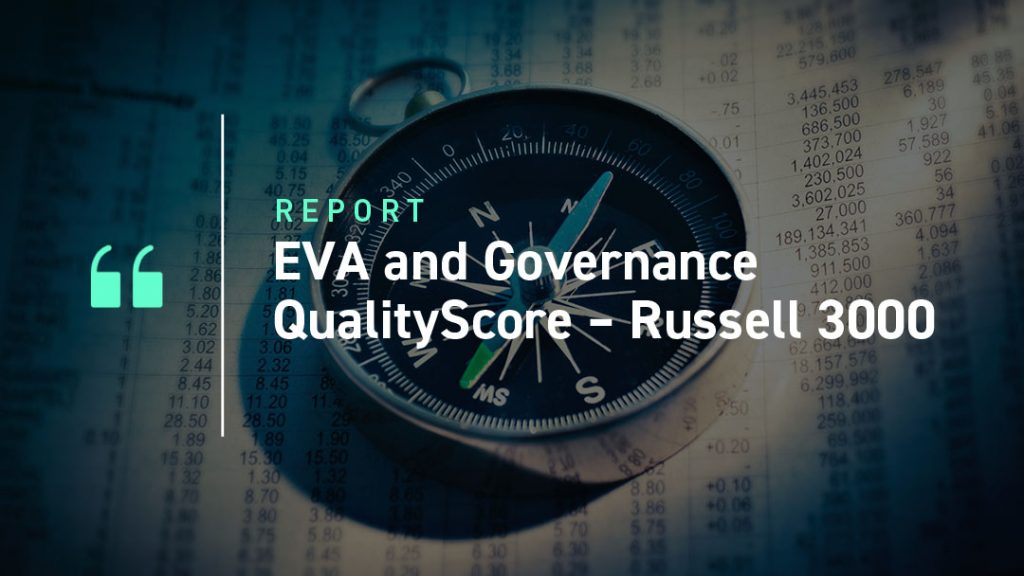
1. EVA and Governance QualityScore – Russell 3000
January 14, 2022
In a post-pandemic world, investors are focusing on identifying the right governance and ESG topics. A key element in this decision is understanding financial materiality and governance quality at investee companies and potential new investments. In this report we combine Economic Value Added (EVA) and the ISS Governance QualityScore (GQS) for US firms to identify financial materiality and governance quality.
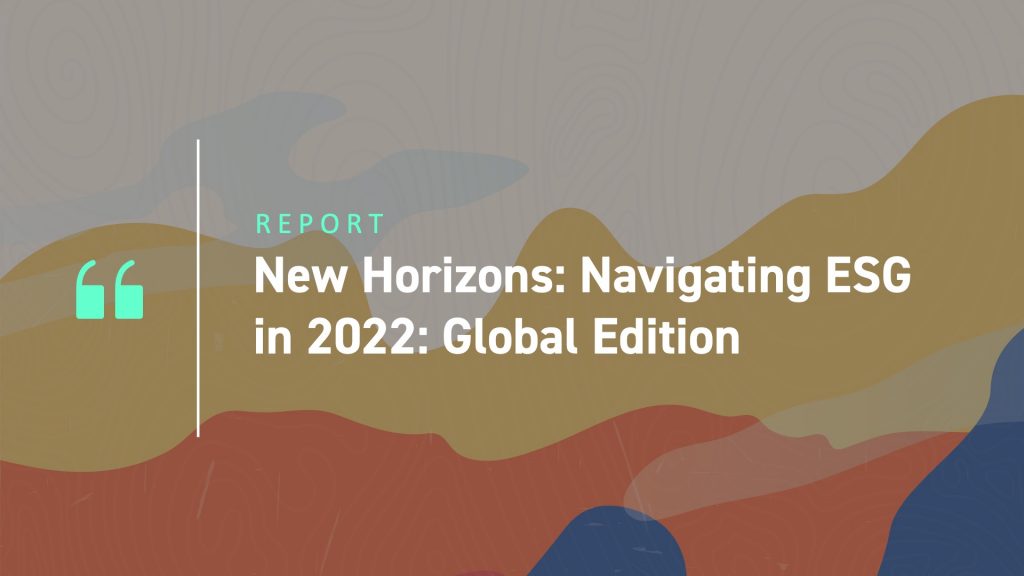
2. New Horizons: Navigating ESG in 2022: Global Edition
February 22, 2022
The increased prominence of environmental, social, and governance (ESG) factors in investment decision-making comes with increased responsibility to ensure that sustainable investment is demonstrating real-world outcomes. ISS ESG has compiled the global and regional ESG themes and trends that have emerged on our radar as the key issues to focus on this year. Using ISS ESG data, analyst commentary, and comprehensive qualitative research from the ISS ESG global database, this paper acts as a year-long resource for investors seeking to navigate the potentialities of diverse global and regional ESG issues and their impacts across various investment markets.

3. Russia Sanctions: How Far Will They Go?
March 10, 2022
- The Russian invasion of Ukraine has pushed the EU, US, UK, and other countries to impose new, far-reaching sanctions measures targeting the Russian Government, the Central Bank, state-owned entities, Russian oligarchs, and the Russian financial and banking system.
- This has led institutional investors such as government pension funds in Europe and state pension funds in the US to divest their Russia exposures.
- While they have negatively impacted the Russian economy, the sanctions measures’ long-term effects remain to be seen. The imposition of additional sanctions measures could destabilize international energy and financial markets.
ISS ESG’s Sanctions and Sovereign Solutions can help investors manage risks associated with evolving sanctions related to the Russia-Ukraine conflict.
- The EU Commission’s proposal for a Directive on Corporate Sustainability Due Diligence (the Directive) goes beyond existing regulations related to responsible corporate behaviour.
- Human rights, labor rights and environmental due diligence in global value chains have never been more important than today.
- Investors and companies should prepare now for increasing regulatory requirements and public scrutiny.
- The industries identified by ISS ESG Norm-Based Research (NBR) to be most involved in human rights, labor rights, and environmental controversies in global value chains are Textiles & Apparel, Retail, Food Products, Automobile, and Electronic Devices & Appliances.
- ISS ESG Corporate Rating data demonstrates that the majority of companies in high-risk industries have not yet implemented sufficient due diligence to mitigate social and environmental risks and impacts along their value chains.

5. Transparency Paves the Road to Net Zero
May 17, 2022
- Transparency is the foundation of a successful Net Zero transition. Given heightened concerns about what has been described as “the climate emergency,” transparency about where actors stand on climate issues is crucial. Companies and financial institutions alike need to disclose medium-term action so it can be scrutinised, allowing for the identification of gaps that need to be tackled.
- Standards setters and regulators are driving transparency, from the Task Force on Climate-related Financial Disclosures (TCFD) to the US Securities and Exchange Commission (SEC) and the International Sustainability Standards Board (ISSB). The development of a comprehensive global baseline of sustainability disclosures could significantly promote transparency further.
- Active ownership via engagement and voting, together with litigation by shareholders and other stakeholders, are increasingly motivating enhanced disclosure. Shareholder proposals requesting disclosure of emissions reductions goals remained one of the top climate-related proposals in 2021.
- The market needs to become more transparent: 71% of companies in the STOXX USA 500 and 73% within the STOXX Europe 600 are disclosing all material Scope 1, 2 and 3 emissions and 23% (STOXX USA 500) and 47% (STOXX Europe 600), respectively, have an emission reduction target approved by the Science Based Targets initiative (SBTi). Larger companies are driving overall transparency performance, but there is pressure for the rest of the market to step up.
- Financial institutions are increasingly expected to report transparently on their climate change-related governance practices. This could involve climate competency within boards, explicit structures for climate oversight, and clear responsibilities for climate strategy and risk management, along with prioritising real economic impact over ‘virtual’ emission reductions.
- The human rights regulatory landscape is changing rapidly, evolving from soft to hard law and with momentum towards mandatory due diligence.
- These changes are driven by jurisdictions responding to human rights challenges with the introduction and strengthening of mandatory disclosure legislation and import controls.
- Companies, and also increasingly investors, are subject to regulation that is expanding in its scope and enforcement and that requires identification, mitigation, remediation, and disclosure of adverse human rights impacts.
- This paper provides a resource for investors to navigate the human rights regulatory landscape, focusing on human rights due diligence, along with single-issue regulation on modern slavery, indigenous rights, and artificial intelligence. Along with highlighting the strengths and limitations of current regulatory models, the paper includes an overview of key legislation on human rights globally (see Appendix 1).

7. An Investor’s Guide to the Circular Economy
July 14, 2022
- Humanity’s current global consumption patterns would require the resources of 2.3 planet Earths by 2050. Adopting a circular approach in our economic design and planning offers an opportunity to turn this trend around.
- Cost of living concerns are on the rise, and circular economy thinking can combat increasing prices for raw materials. The circular economy focuses on keeping resources at their highest value and reducing waste, meaning companies with a circular business model can provide more value to their customers while using fewer resources.
- This matters for investors – analysis suggests that the more circular a company is, the lower its risk of defaulting on debt, and the higher the risk-adjusted returns of its stock.
- Product circularity is about more than just recycling – the concept needs to be built into the design and planning stage if it is to truly deliver on its potential. Circular business models offer tangible benefits to the management of real-world problems such as climate change, working conditions, and threats to biodiversity.
- The banking sector is actively utilising the concept of circularity in the design of a range of new corporate financing products.
- As the circular economy gains increasing prominence, regulators have a range of different levers they can pull in order to maximise the economic benefits associated with new, more transparent ways of doing business.
- ISS ESG continues to focus on this emerging area of sustainability thinking in our work with investment clients to maximise the positive real-world outcomes associated with their own responsible investment practices.
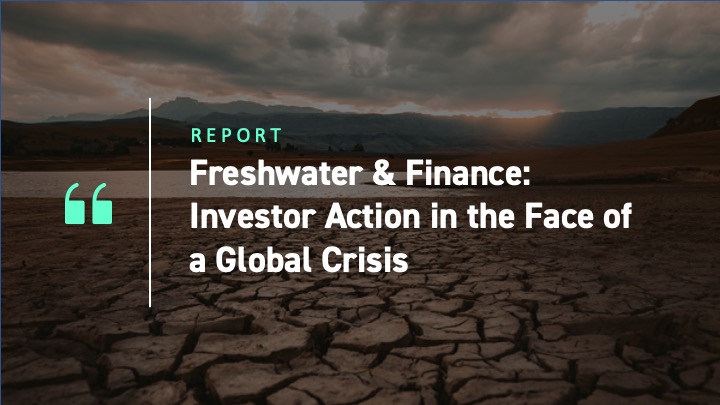
8. Freshwater & Finance: Investor Action in the Face of a Global Crisis
September 2, 2022
- Freshwater is a scarce resource. Major world events have recently driven home the implications of climate change for both water scarcity and also water-related disasters.
- Investors are increasingly taking notice of the risks that water scarcity poses for investments in a number of sectors, as highlighted by the recent announcement of the Ceres-backed Valuing Water Finance Initiative.
- When looking at water risks in their portfolios, investors are able to consider both the risk to an investee’s business and the risks to water supplies arising from the business’ operations.
- With the launch of the new Water Risk Rating, ISS ESG clients have access to thorough coverage of how companies in their portfolios depend on or affect freshwater resources. This coverage can help them with their investments, from asset selection and retention through engagement and active ownership practices.
- The scope and pace of global sustainable finance regulation has accelerated in 2022 across an array of regulatory areas (taxonomies, ESG and climate risk management and disclosures, product requirements, ESG in stewardship, and green bond frameworks).
- Regulatory efforts continue to prioritize management of climate-related financial risk as well as preventing greenwashing, although the agenda is beginning to expand to nature-related risks and social issues as well.
- The European Union continues to be the leading region in the depth and breadth of its regulatory initiatives.
- Asia has accelerated the pace of growth in new initiatives, and North America and Australia have significantly increased their regulatory efforts for ESG-related capital markets. The UK has also proposed and is expected to advance an ambitious agenda.
- In 2022, geopolitical tensions, economic volatility, and the politicization of sustainable finance have created policy challenges. Given these conditions, policymakers may aim to pursue sustainable finance regulation that reconciles policy objectives and fosters economic and energy resilience in line with climate transition goals.
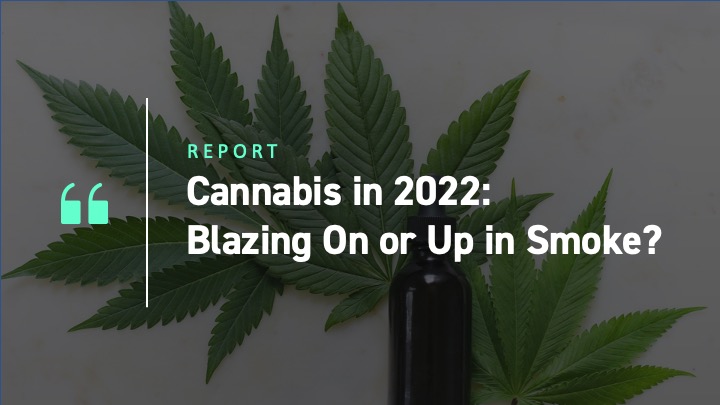
10. Cannabis in 2022: Blazing On or Up in Smoke?
October 19, 2022
- Four years after cannabis legalization in Canada, a review of the policy change’s early successes and failures is now possible.
- The United Nations and United States have taken largely symbolic steps toward greater openness to medicinal and recreational uses of cannabis.
- Cannabis presents both potential medical benefits and health risks, but research in these areas is lacking.
- The international cannabis market continues to expand, and investors can respond in several possible ways. ISS ESG Sector-Based Screening can support investors as they determine their approach.

11. Diversity on North American Boards – Now and Into the Future
November 7, 2022
- According to ISS ESG’s Governance Data solution, a majority of S&P 500 companies are reporting that more than 1/3 of their board positions are occupied by women. Women also serve in key leadership roles on the boards of more than 75% of the S&P 500.
- Over the last year, board racial and/or ethnic diversity has visibly improved, from 95% to 99% of S&P 500 companies having at least one board member from a relevant category.
- Voluntarily disclosed Equal Employment Opportunity Commission data suggests that the pipeline of underrepresented individuals in executive and senior-level positions across gender and racial and ethnic diversity may be limited, however.
- Investors seeking to improve their portfolio’s impact on diversity can conduct outreach and dialogue with companies underperforming in this area.
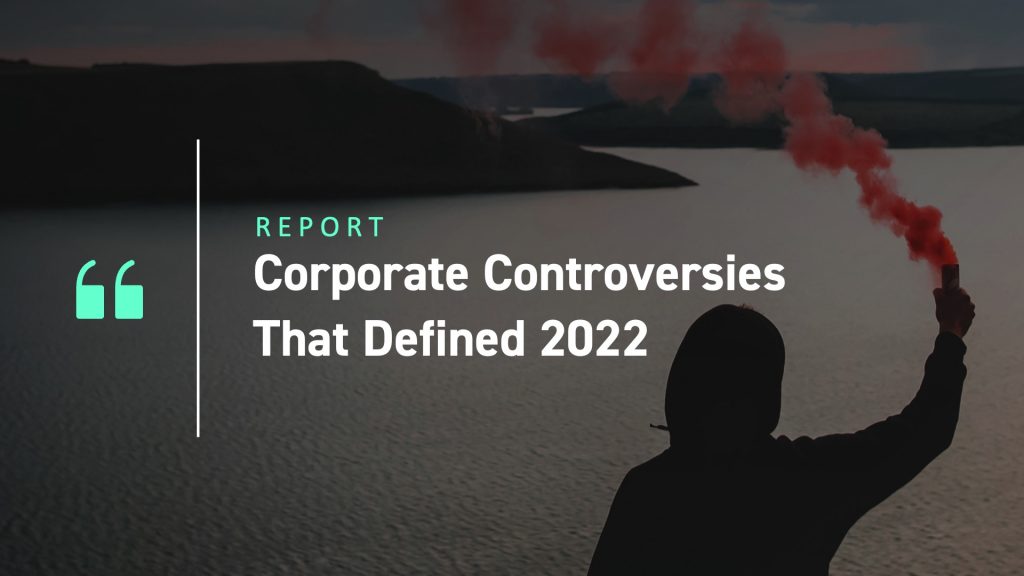
12. Corporate Controversies That Defined 2022
December 12, 2022
- ISS ESG identified and tracked nearly 17,000 ESG controversies, reported by the media and stakeholders, linked to around 3,000 of over 17,000 monitored companies.
- The largest share of the 17,000 individual corporate controversies, at nearly 18%, revolved around labour rights, with strike action, working conditions, and union rights as predominant themes. In contrast, corporate controversies linked to climate change and biodiversity received less attention from the press.
- Energy and Automobiles & Components were overall the industries with the highest intensity of ESG controversies. The pervasiveness of controversies was greater among Telecommunication Services, however, where a third of companies were tied to problematic conduct.
- While the international community continues to reiterate the need for adequate remediation measures for controversies associated with the Xinjiang region of China, only a few issuers with ties to the region have heeded this call.
- Issuers’ activities in Myanmar continue to be scrutinized, with the focus shifting to their exit from these ventures, placing companies in a difficult position.
- For companies that continue business operations in areas of high risk and insecurity, such as Iraq and Syria, the long-term risk of significant financial penalties, damaged reputation, and criminal convictions outweigh immediate fears of lost revenue and market position.
- There is an increased focus on safe, diverse, and inclusive workplace culture in the developed market regions, especially driven by internal and external investigations of sexual harassment in Australia’s FIFO industry.
- Big Tech companies continue to face scrutiny from both international and national regulators for abuse of dominance, resulting in an increased risk of hefty financial penalties, among other problems.
